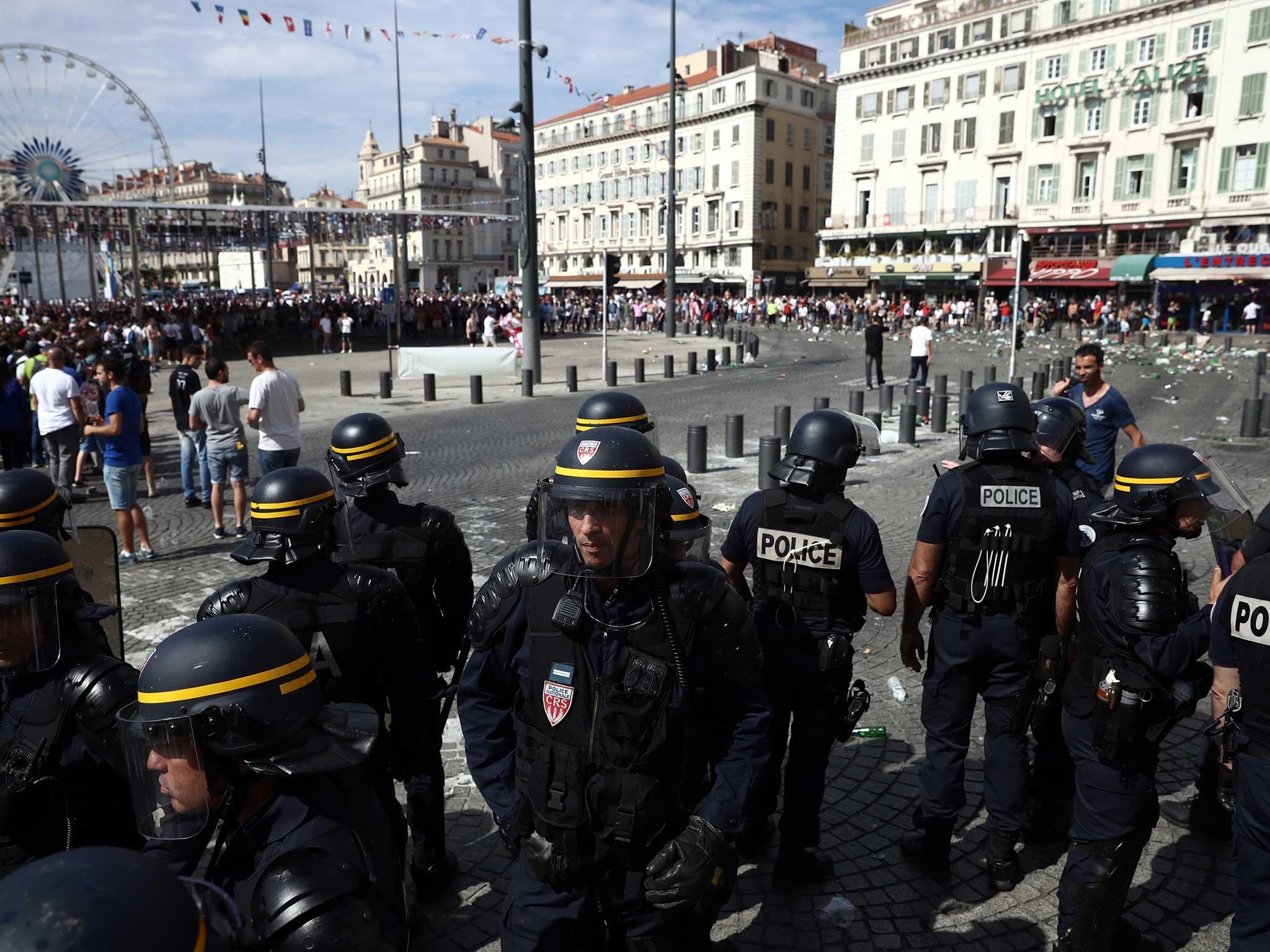Euro 2016: Shameful Marseille violence between England and Russia fans a classic example of cause and effect
It was Uefa and Marseille’s job to be ready for the game, but both were patently unprepared

Your support helps us to tell the story
From reproductive rights to climate change to Big Tech, The Independent is on the ground when the story is developing. Whether it's investigating the financials of Elon Musk's pro-Trump PAC or producing our latest documentary, 'The A Word', which shines a light on the American women fighting for reproductive rights, we know how important it is to parse out the facts from the messaging.
At such a critical moment in US history, we need reporters on the ground. Your donation allows us to keep sending journalists to speak to both sides of the story.
The Independent is trusted by Americans across the entire political spectrum. And unlike many other quality news outlets, we choose not to lock Americans out of our reporting and analysis with paywalls. We believe quality journalism should be available to everyone, paid for by those who can afford it.
Your support makes all the difference.Sunday morning in Marseille’s Vieux Port and the street cleaners are out, disinfecting streets which reek of stale urine and attempting to clear the shards of green glass which generate the unmistakeable backdrop of crunching underfoot.
At Stade Velodrome, the carnage of the night before is still being assessed, with damaged seating in the section populated by Russian and English supporters only telling a fraction of the story of the worst outbreak of football violence inside a stadium at a major tournament in recent memory.
Uefa, in uncharacteristically bold fashion, have been swift to condemn the hooliganism, speaking of their ‘utter disgust’ in a statement issued at Sunday lunchtime.
But European football’s governing body cannot escape criticism or blame for the scenes which have stained Euro 2016, despite their strongly-worded statement.
No football administrator can be accused of sparking the trouble which flared in the Vieux Port on Friday night and Saturday afternoon – the idiots at the centre of fighting only have themselves to blame.
But Saturday’s shameful events were a classic example of cause and effect and Uefa’s organisation, both before and during the England’s Group B encounter with Russia, contributed to the scenes which have now been flashed around the globe on a loop for the past 24 hours.
Where were the police inside the stadium? Why was more not done to influence an alcohol ban ahead of such a potentially-volatile fixture? And why was the segregation in Stade Velodrome so obviously inadequate before the trouble erupted at the end of the game?
World Cups and European Championships have become such sanitised, middle-class events that the old disease of football hooliganism appeared to have been consigned to history.
The images of men, women and children, face-painted in their national colours, are the images that Uefa and Fifa want us to see and that has largely become the norm.
But complacency has set in – a fact acknowledged with Uefa conceding the inadequacy of the segregation in Marseille – and the price was paid in full in France’s tinderbox Mediterranean port city.
The argument that the England-Russia fixture should have been switched from Marseille because of historical tensions does not hold water.
As one of Euro 2016’s biggest stadiums, Stade Velodrome was perfectly suited to hosting the game. If the tie had been moved, how would Uefa act if they were suddenly faced with an England-Germany semi-final in the city at four days’ notice later in the tournament?
It was Uefa and Marseille’s job to ensure that the city was ready for the game, but both were patently unprepared.
But the events of the weekend should now act as an alarm call, not only for the remainder of Euro 2016, but also for the next World Cup in Russia in two years’ time.
In France, there are clear issues looming in the group stages, with certain fixtures likely to prompt security concerns.
Marseille must host France-Albania and Poland-Ukraine – two fixtures with the potential to generate trouble, while England’s encounter with Wales in Lens is another which carries all kinds of risk.
What will happen on Wednesday, when Russia face Slovakia in Lille – a city likely to be the base for thousands of English and Welsh fans making the short journey to Lens the following day?
Is enough being doing on the security front to nullify the threat posed by these fixtures and, after the mistakes of Marseille, will Uefa abandon its policy of encouraging police to stay out of stadiums and accept that a visible show of authority can act as a crucial deterrent?
Looking further ahead, how well will Russia be prepared in 2018?
Already a country with one of the worst hooliganism problems in the world, will the Russian authorities clamp down over the next two years or will England fans be forced to roam the streets of Kazan, Nizhny-Novgorod and Volgograd in two years’ time, worrying about groups of local thugs mounting attacks as they did in Marseille?
Steps will clearly be taken, however, and Marseille feels like a fork in the road, the game-changer which forces football to once again address some old problems.
The only question now is whether those in charge of making the big decisions are ready to take them on.
Join our commenting forum
Join thought-provoking conversations, follow other Independent readers and see their replies
Comments